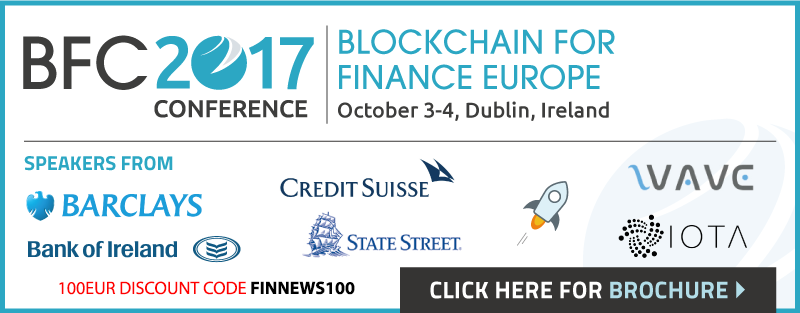The success of blockchain, the technology underlying Bitcoin, has grown each year as angel investors, VCs and banks continue to inject millions in investments to fuel the development of systems based on blockchain, attracted by the technology’s potential to streamline processes, cut out intermediaries and significantly reduce operational costs across various industries.
Around the world, financial institutions, corporations and government agencies have begun either deploying blockchain solutions or exploring the use of the technology in various applications and areas, ranging from diamond supply chain tracking, governmental land title recording, to cross-border payments, and securities clearing and settlement.
According to Goldman Sachs Investment Research, the implementation of blockchain technology could streamline the clearing and settlement of cash securities, saving capital markets US$2 billion in the US alone and US$6 billion globally on an annual basis.
Blockchain in capital markets

Chart via Pixabay
Capital markets, the markets for buying and selling equity and debt instruments, have developed complex global network of interconnected banks and intermediaries that enable the vast global flow of capital across borders.
Each transaction passes through multiple intermediaries, each maintaining their own data silos. This process results in the duplication of data entry, unnecessary reconciliation errors, inefficient use of capital and delays to settlement, costing money and creating greater risk.
Blockchain has the potential to radically address these issues, eliminating intermediaries as well as reducing settlement times, says PwC, and can be applied to different use cases, ranging from securities settlements to syndicated loans, derivatives valuations to confirmations.
For settlements, blockchain can cut out intermediaries and provide a trusted and shared view of permissioned data, enabling reduced costs, faster settlements, increased resilience and improved transparency.
For collateral management, blockchain can solve new collateral requirements, eliminate operational complexity and costs, and increase flexibility.
For confirmations, a smart contract on a blockchain can automate confirmed lifecycle contracts, enabling increased trust and transparency, reduced costs, reduced operational risk, and enable better measurement of contingent risk.
What has been done so far

Image via Pixabay
The capital markets sector has taken real notice of blockchain.
In Switzerland, post-trade infrastructure operator SIX Securities Services has teamed up with distributed ledger technology developer Digital Asset, to develop a proof-of-concept to demonstrate the commercial viability of blockchain technology across the Swiss financial market.
An initial prototype for securities lifecycle processing is currently being developed but the two firms are also planning to formulate a roadmap for future opportunities spanning the whole market infrastructure value chain.
SIX and Distributed Leger / First real blockchain transaction in fund distribution
Thomas Zeeb, SIX Securities Services’ division CEO said that “distributed ledger technology and its potential role in post trading is key to our business.”
“We need to understand it, and more importantly, its applicability and future flexibility in order to keep ahead of the game.”
In Luxembourg, KPMG, Fundsquare, a subsidiary of the Luxembourg Stock Exchange, and InTech, teamed up to develop and deploy a blockchain-powered platform for fund managers.
Called FundsDLT, the platform enables asset managers to sell funds directly to investors, thereby significantly reducing the cost of administration and the time needed to process transactions.
“We believe these are the first fund sales using a blockchain-based platform, which were carried out in the world’s second largest market for net assets under management,” said Eamonn Maguire, global leader for KPMG’s Digital Ledger Services.
“It is a major breakthrough in validating blockchain as a technology to enable funds trading and has the potential to reshape the investment industry, bringing important commercial benefits to industry participants.”
Government Bond / Schuldscheine and Credit Default Swaps
In January, Commonwealth Bank of Australia claimed a world-first, announcing it had issued the first-ever government bond using blockchain. The bank said its capital markets blockchain platform was used to arrange a “virtual cryptobond” for Queensland Treasury Corporation. The firm was able to use blockchain to generate a bond tender, view investor bids in real time, finalize investment allocation and settle instantly with investors, the bank said.
At the end of June, German car manufacturer Daimler floated part of its €100 million (US$114.1 million) German bond (Schuldschein) using blockchain technology. The pilot project was among the first of its kind, the company told the Wall Street Journal.
American post-trade provider the Depository Trust and Clearing Corporation (DTCC) said earlier this year that it will use blockchain technology to rebuild its platform that processes US$11 trillion worth of credit default swaps.
IBM Corp. and blockchain startups Axoni and R3 CEV have been selected to work on the project which kicked-off in January. DTCC expects the new blockchain-enabled Trade Information Warehouse (TIW) to go live in early 2018.
European blockchain startup BlockEx is developing a digital asset issuance platform with an aim to issue the first blockchain-powered bond.
The bond platform enables issued to create smart contracts that specify coupons, payment dates and maturities, with the flexibility to create real-friendly payout structures such as monthly or even daily coupons.
A full lifecycle platform, it aims to settle trades within 30 seconds and leaves a secondary market that generates an indelible history of buying and selling activity using distributed ledger technology.
BlockEx hopes to become a leading exchange for the issuance of digital assets including bonds, equities and syndicated loans.
In June, BlockEx announced that it has been selected for the UK Financial Conduct Authority’s Regulatory Sandbox cohort 2. The startup will be testing its blockchain-based products and services within the authority’s sandbox with an aim to reduce time-to-market at potentially lower cost, develop appropriate consumer protection safeguards built into new products and services, and create better access to finance.
Blockchain Finance Event in Dublin
All those topic will be discussed on a blockchain for finance summit to be held in October in Dublin. Fintechnews user will get 100EUR Discount when using the Code “FINEWS100”. Check out the program here . Register before August 11th and safe an additional 600EUR.
 Featured image: Blockchain via Wikimedia Commons.
Featured image: Blockchain via Wikimedia Commons.
The post Blockchain in Capital Markets: What Has Been Done So Far appeared first on Fintech Schweiz Digital Finance News - FintechNewsCH.
Comments